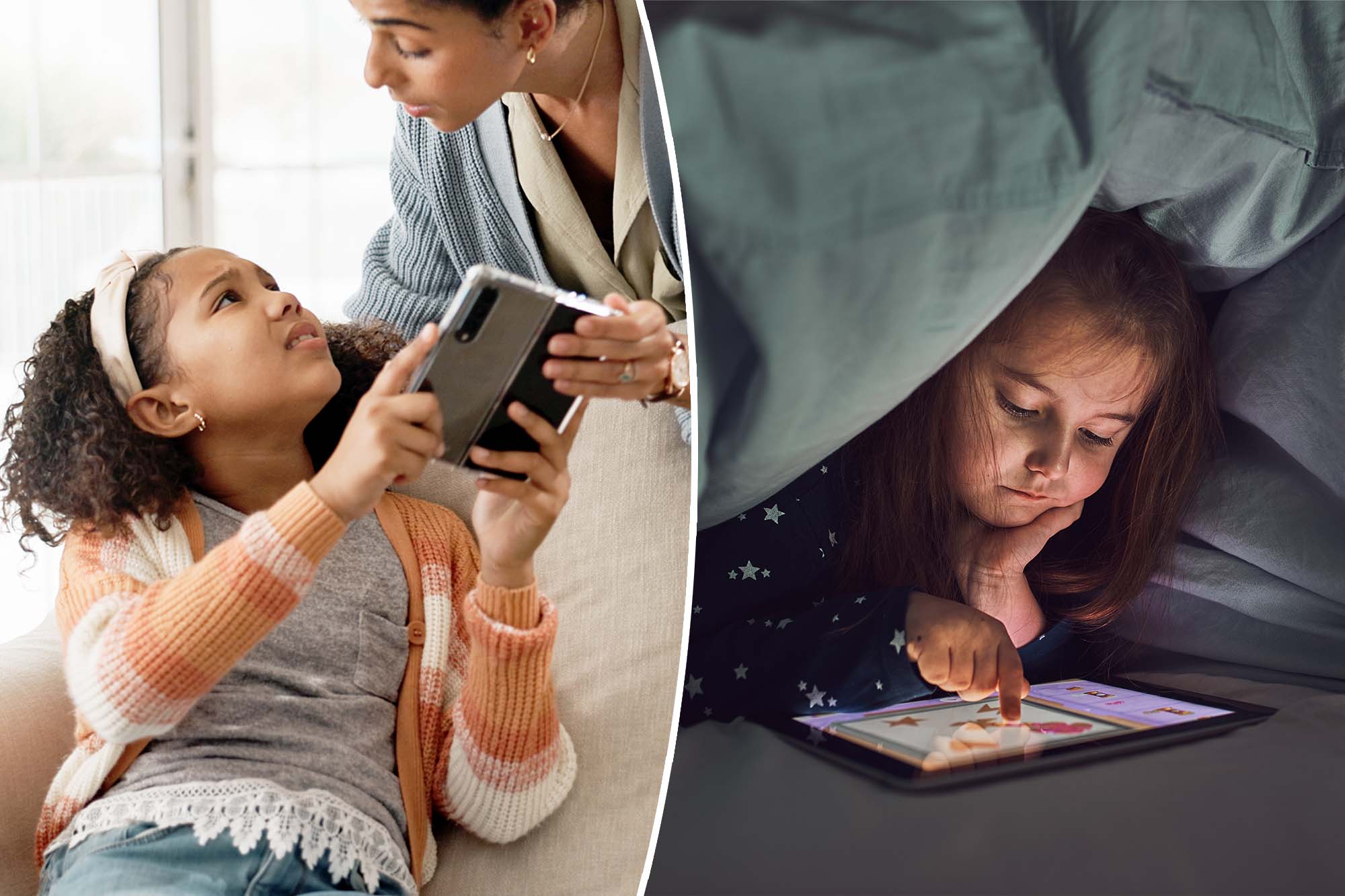Parents spend about 96 hours fighting with their children during screen time each year.
This impressive statistics means that hundreds of parents’ fights are induced by modern technology.
This is according to a new survey of 2,000 parents of children in kindergarten until the fifth degree, which aimed to investigate how screens can affect children’s relationships.
Behind these conflicts is a deeper concern: the two -thirds (67%) of parents fear that they will lose precious moments with their children due to screen addiction.
Even more important, 41% of parents said they are afraid to completely lose their childhood childhood to technology.
The study, conducted by Talker Research on behalf of Angelq, a suitable browser for children, revealed the greatest parents’ concerns about children’s online life, including exposure to online predators (51%), accidental exposure to inappropriate content (46%) and screen addiction (45%).
Other significant concerns are cyberbullying (44%), children seeking content that are not adapted to age (40%), the negative influence of social networks (37%) and negative impacts on mental health (37%).
About three out of five parents (61%) care that too many screen time replace important elements of child development, such as building strong social skills and empathy.
Six out of ten parents allowing their children to use the Internet said that their online time is spent not being supervised.
“This survey demonstrates how technology is currently aligned with families instead of being ally with them,” said Tim Estnes, CEO and co -founder of Angelq. “Our children lose years of their childhood, the beautiful time they will never do again, to exploiting products that add them. We believe that technology should educate and strengthen, not distract and divide families, and this begins to give parents easier tools to manage screen time without daily struggle.”
Parents reported on the side effects of excessive screen time, including irritability (27%), mood changes (24%) and complete discomfort (22%).
Other wavy effects included a decrease in care with offline activities such as homework (19%), high levels of anxiety (14%) and sleeping problems (14%).
Children find more and more sophisticated ways to keep the screen time, and parents discover their children to hit the back (39%), accessing completely different devices (20%) and changing the controls or permits without the knowledge of their parents (18%).
Other solutions of solutions included children who operated “emergency” or “educational” modes (15%), creating new user accounts (13%) and using Siri or voice orders to open applications (13%).
When children are reluctant to disable an Internet device, parents admit to 65% of the time. Parents in Z Z, more than any other generation, said they gave “often” (28%).
“This pattern of resistance and surrender creates a dynamic of power that reduces parental roles and strengthens the behavior depending on the screen in children,” he said.
These conflicts are likely to occur at the dinner (64%), disturbing a significant time of family bonding.
The most common disagreements are focused on the duration of the admissible time (43%), the content rates or the applications that children can access (18%) and require the approval of parents to watch videos or games (18%).
Half of the parents (52%) that allow their children to access the Internet, said they wish they had been waiting for longer before giving their children access to the Internet devices.
This lament was the highlight among parents of gene Z (63%), compared to millennials (53%) and XERS genes (50%).
The approaches of many parents for the screen of the screen are influenced by their own child experiences with technology, with 34% who said they affected their style of parenting and choice to limit children’s access to the Internet.
Despite these challenges, parents recognized positive aspects of screen time, including seeing their children to explore their interests (60%), access to educational content (59%), the ability to learn digital skills of a lifetime (58%), increase intercultural awareness (25%) and the opportunity to connect with other children with online mentality (24%).
“These findings show the delicate act of balance that parents have, eager to protect childhood while preparing children for a digital world,” he added. “We acknowledge that screen time is not inherently bad, but today most of the options. We want to reimagate how children use technology to create healthy habits that allow young people to dream of ideas and create -in the real world.We are committed to helping families establishing limits that work, so that technology is still a tool to improve childhood, without removing it.”
Survey Methodology:
Talker Research surveyed 2,000 parents with children in kindergarten until the fifth degree; The survey was commissioned by Angelq and was administered and made online by Talker Research between March 7 to March 11, 2025.
#time #parents #spend #fighting #children #screen #time #year
Image Source : nypost.com
